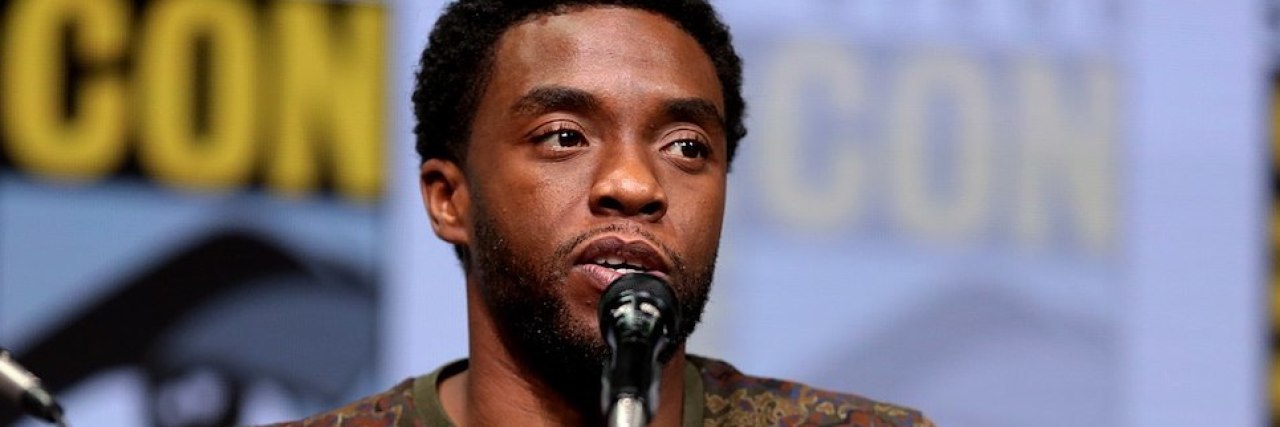3 Important Conversations to Have Following Chadwick Boseman's Death
This past weekend we lost the young, legendary actor Chadwick Boseman, who portrayed a variety of Black historical and cultural figures including Jackie Robinson, Thurgood Marshall, James Brown and Marvel’s Black Panther, T’Challah, the king of Wakanda. His death leaves a void in Hollywood and in the hearts and minds of his fans that may not be easily filled. However, his life and his legacy will continue to change us as we remember him and his work.
Here are three conversations that may be helpful to have in remembrance of Chadwick Boseman.
The Pervasiveness of Hustle Culture
On the night of his death, Boseman’s official Instagram page revealed that the actor received his diagnoses in 2016. Social media posts were quick to point out that Boseman was able to complete six movies, including “Black Panther,” while battling cancer. While many noted this as a testament to his work ethic, some took it a step further by using Boseman’s accomplishments as a way to extol and promote hustle culture often with the tagline, “what’s your excuse?”
While Boseman’s body of work is rightfully applauded, his ability to share his talent while battling the disease that eventually took his life isn’t an endorsement of the “rise and grind” and “no days off” lifestyle that is celebrated in hustle culture. Overworking is often seen as a requirement of unbridled ambition in American style capitalism, but this “hustle” mentality can lead to anxiety and depression, be a sign of poor boundaries in personal and professional life and may be literally working us to death.
Boseman life’s work is an accomplishment and one that should be lauded on its own merit. Using it to shame anyone who may need a break from the daily grind for their own mental and physical health is a disservice to his legacy and irresponsible. In his remembrance, let’s talk about how unhealthy obsession with work may be harming us and those around us, and how we may be able to better focus on ways to thrive while taking care of our mental and physical health through proper rest from our daily hustles.
Healthcare Access
Boseman’s death came as a shock not only because of his young age, but also the form of cancer that took his life. Colorectal cancer has until recently been treated as a disease that mainly affects older people. The recommended age for screening for colon cancer has just recently been lowered from 50 to 45, though many insurance providers still refuse to pay for the procedure for younger patients without a family history of the disease.
While Boseman certainly had access to top notch quality of care such as nutritionist, doctors and top tier medical facilities, this isn’t the case for many other Black Americans because of disparities in quality and availability of care. Though colorectal cancers are more prevalent in Black and Hispanic communities, they are less likely to have the ability to diagnose and treated early because of discrepancies in access to quality healthcare. What’s more, even if access were available, African American’s often receive lower quality health services from doctors because of prejudices in medicine including for cancer preventative care and treatment.
Boseman’s death is an excellent time to reexamine how quality care may be delivered to everyone so as to prevent anyone from succumbing to treatable cancers and other curable diseases. It can also be used as a moment to learn more about colorectal cancers and how they are increasingly impacting younger adults of all ethnicities, but especially Black and Hispanic.
Grieving a Celebrity
Memorials to Chadwick Boseman were everywhere soon after the word of his death spread. The MTV Video Music Awards dedicated to show to him and ABC aired a commercial-free showing of “Black Panther” followed by a special featuring other celebrities remembering Boseman and his work. These events along with photos and memories of his films were shared across social media platforms with timelines becoming memorials and monuments to Boseman and his work.
To some, it may seem strange to grieve the life of someone we don’t know personally. The truth is, celebrities often have important parts of our lives through the work they have been in. They connect us through their films or songs and larger than life personalities that individuals may relate to in different ways. I myself felt a connection to Boseman’s work through the lens of a Black man and as a fan comics and “geek culture.” His portrayal of iconic, dignified Black characters in an industry that often typecasts Black actors into stereotypical roles was admirable, and his role as Black Panther gave me and my friends something to debate about for weeks.
Though other’s connection to Boseman may be different than my own, it may certainly be as strong, if not stronger, and his loss may be felt as deeply. It’s important to not judge. Grieving this loss may take place in different forms including discussing them with friends or revisiting their past work.
Related: On Chadwick Boseman, and Why It’s OK to Grieve the Death of a Celebrity
Boseman certainly left his mark on the world, and even in his death continues his impact through films and other works, and through the memories and conversations that are happening in the celebration of his life and the grieving of his death.
Lead image via via Wikimedia Commons

